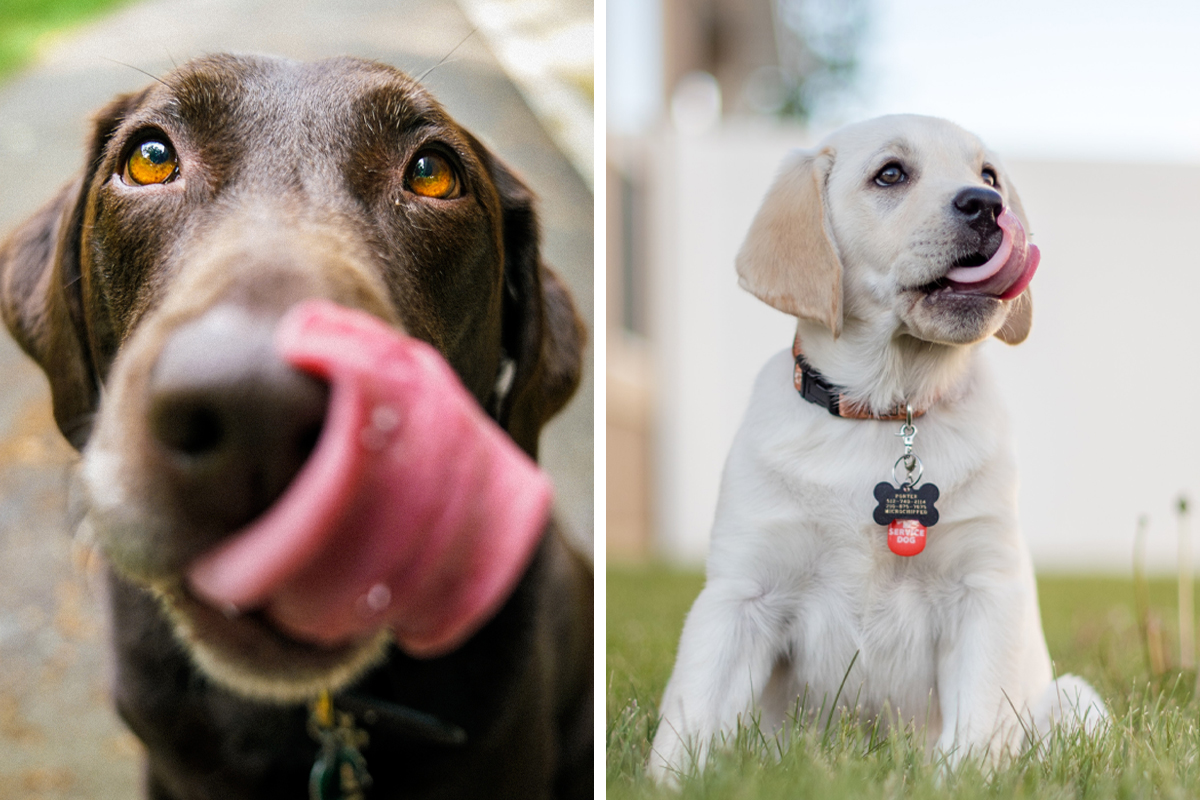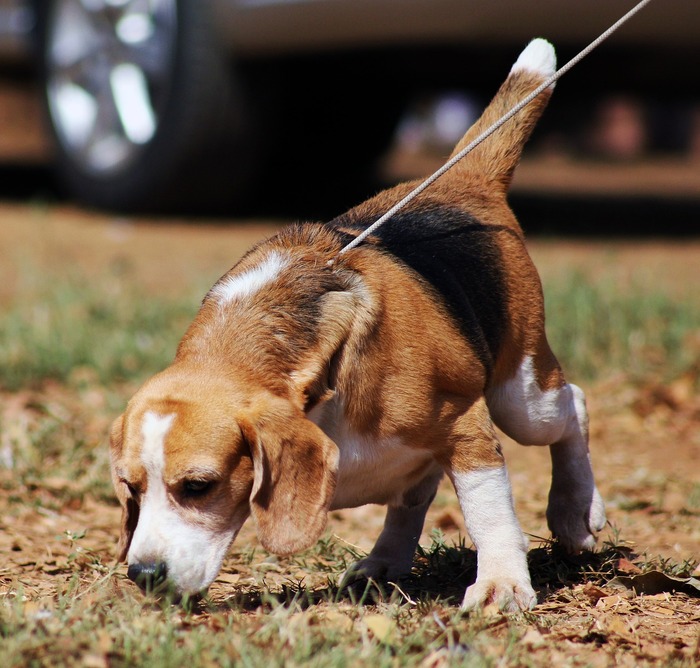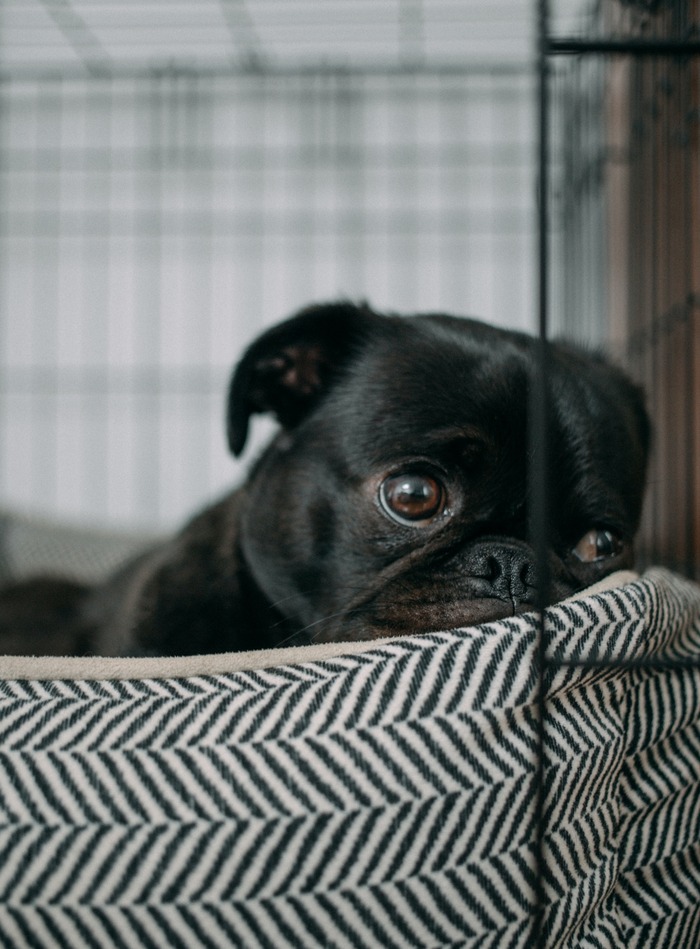Dogs can develop a plethora of interesting habits. Like humans, there is typically a rhyme and reason for their choices, regardless of how unappealing that habit may be.
Coprophagia, the act of eating fecal matter, is one of those quirky habits that dogs can exhibit on the regular, leaving their owners slightly disturbed.
Whether it’s eating their own poop or digging through your cat’s litter box for buried treasure, owners are left asking why their beloved pet would choose to do something so bizarre and downright gross.
- Inadequate exercise or attention might push dogs to eat poop.
- Behavior can be innate, such as mother dogs cleaning after pups.
- Eating feces poses health risks like parasites and diseases to dogs.
- Treatment varies from additives like pineapple to veterinary care.
Coprophagy is considered to be a common problem and all dogs will engage in poop eating at some point in their lives, but are these behaviors rooted in anxiety or isolation?
Image credits: Pixabay
From poop eating to chewing furniture, dogs tend to express their feelings of anxiety in ways that get our attention pretty quickly. Your dog may even resort to eating their own poop or the droppings of another animal in order to convey a message to you.
With this information, it’s important to analyze every aspect of your pup’s life. Are they properly exercised? Is enough attention being given? Is there living space adequate? Do they have a well-rounded diet? Are there any underlying medical issues?
All of these factors could play a colossal role in the behavior your dog chooses to partake in – yes, that even means they may eat their own poop.
The information provided herein is for informational purposes only. Please refer to our disclaimer for more details..
Is it Normal for Your Dog to Eat Poop?
In short, yes, but if it becomes habitual, you might need to dig a little deeper for answers. The reason your dog is eating poop could be as simple as them just wanting another taste of their breakfast to behavioral problems, such as feeling isolated or anxious.
Some veterinarians believe that if your dog has a small space to do their business, such as a tiny side yard or even a potty pad, they will take it upon themselves to keep their area clean so that there is more space for them to roam around.
Ensuring that your dog is not crammed into a claustrophobic space is vital in deterring them from feeling like they need to engage in eating their own feces.
Image credits: Unsplash
Along with your dog potentially feeling isolated, their poop eating could also be stemming from anxious feelings. If you rescued an adult dog who came from an abusive home, there is the possibility that they had a very traumatic time as they were being house trained.
Due to this, your dog is going to feel obligated to hide the evidence, even if his elimination location is appropriate. It’s not his fault – it’s what he was conditioned to do so he doesn’t get punished. If your dog has experienced abuse in any form, be diligent about training with positive reinforcement when they relieve themselves outside or in a designated area.
Not only does it build trust with your dog, but it makes him feel safe and at ease, making him feel less obligated to associate poop with something he needs to hide.
Some veterinary professionals believe that your dog could also be eating their own droppings due to just being bored. If you have a dog who spends a majority of his time outside, eventually, he is going to get bored with his normal activities and seek to spice it up.
If this is the case, make sure that you have a number of engaging activities for your dog outdoors. This can be something like a herding ball, dog puzzles, a self-launching fetch machine, any type of dog toy, or a specific digging area. Providing your dog with ways to stimulate and entertain himself could be a key in curbing the habit of eating any type of fecal matter.
An innocent but ornery reason dogs engage in coprophagy is to get your attention. Negative attention is still a win in their eyes – if you run out into the backyard flailing your arms about, screeching at them to stop, they’re just happy that your eyes are on them at that moment.
This can even turn into a game of chase, which instills the thought in your dog that poop eating will elicit a reaction from you and playtime can begin. Be sure you’re giving your dog a healthy amount of positive attention by petting, going on walks or playing together so that he doesn’t feel the need to attract your attention in other, not-so-pleasant ways.
The Science Behind Canine Coprophagy
A study recorded in the Journal of Veterinary Behavior (2018) states that in short, there is little known information about why dogs eat their own poop.
However, the article also mentions that there can be a few predisposing factors for this specific niche of dog behavior, such as: lack of hygiene, extreme hunger, being in an over-crowded environment, nutritional deficiencies, and lack of social interaction.
If you have a dog who is consuming poop of their own, or even the poop of another dog, put the predisposing factors under a microscope to better understand why your dog might be favoring such behavior.
Interestingly enough, mother dogs who are whelping their brand new pups will lick their rear ends to stimulate them to poop. This is a natural cycle, as that first elimination as a newborn is very important.
Then, the mother will often eat the droppings in order for her little ones to have a safe and clean area to nurse and sleep. This is completely natural dog behavior and can be one of the innate reasons why they continue the habit, even after motherhood.
Coprophagia in dogs can also be traced back to their apex predator ancestors: the wolves. Studies have shown that like whelping mothers, wolves will also eat any and all droppings in their den or safe space to protect their young from contracting parasites that can be transmitted through fecal matter.
Pups who had a front row seat to their guardians demonstrating coprophagy will grow up to care for their own pack in the same way. This will continue to carry on for generations as it is eventually bred into our domestic canine pets.
Can Your Dog Get Sick from Eating Poop?
Image credits: Pixabay
Yes, your dog can become very sick both from eating his own poop and from the droppings that belong to another animal. Although we know it is common for dogs to eat feces, there are multiple risk factors that come hand-in-hand with the act. Your dog could contract an intestinal parasite, a contagious, deadly disease or a very large belly ache.
Parasites like hookworms, roundworms and Giardia live within fecal matter and are easily transmitted if ingested. Intestinal worms feed off of the dog’s bowel, which can result in an internal loss of blood loss. This can result in a diagnosis as severe as anemia.
Giardia is very common in puppies and is wildly contagious and can even be spread to humans. It is sometimes difficult to diagnose without a fecal sample for testing but can cause horrible diarrhea, resulting in dehydration and lethargy.
To top off the handful of worrisome elements that can be transmitted through pet waste, Parvovirus is the most serious, and potentially fatal, if contracted. This disease is spread dog-to-dog and can even be spread just by coming in contact with a surface that the fecal matter has grazed.
The disease itself begins to attack the dogs gastrointestinal system and then moves through the immune system. Dogs will possibly experience bloody diarrhea and vomiting, severe dehydration, weight loss, fever, and more. Young dogs are especially at risk if they contract the virus due to their juvenile immune systems not being able to fight against the extreme symptoms. Parvo is preventable with a vaccine but does not dampen the havoc it has the potential to inflict.
Treating Coprophagia in Dogs
Treatment could be as simple as just picking up after your dog when he’s done with his business. If he is too quick to the draw before you can bag it up, you can also include food additives in his meals that will result in him finding his own poop unappealing.
Pineapple is a popular choice to mix into food due to its acidic nature when eliminated from the body. Dogs will find this deterring and typically will steer away from making a dessert out of their own poop. There are many other digestive enzymes and mineral food additives you can try for your dog if his coprophagy is due to lacking nutrients in his everyday diet.
Evaluate your dog’s environment and the attention that you give them on a regular basis. Anything lacking in those particular areas could be related to why your pet is choosing to eat their poop or the poop of another dog or animal.
If you have the ability to correct or improve any area of your dog’s life that you feel could improve their happiness, there is certainly a high possibility that the stool eating may resolve.
If troubleshooting your dog’s lifestyle doesn’t seem to help, a surefire way to get to the bottom of why your dog is eating his own feces is to see a veterinary professional. Take your dog into his primary care provider to have diagnostics run to ensure that there isn’t an underlying medical condition, especially if he has picked the habit up out of the blue.
Dogs can’t vocalize their reasoning for their actions to us, so oftentimes, diagnostic testing is the best way to guarantee that his body is functioning as it should, systemically.
If you have tried all of the home remedies, are a speedy poop-bagger and know your dog lives a healthy lifestyle, your veterinarian will be able to walk you through the next steps of understanding your dog’s coprophagy and will create a plan with you to conquer the poop eating all together.
152views
Share on FacebookWhen my friend's lab had 7 puppies, she ate their poop to keep their living area clean. This freaked me out until I found out it is a normal behavior.
When my friend's lab had 7 puppies, she ate their poop to keep their living area clean. This freaked me out until I found out it is a normal behavior.







8
1